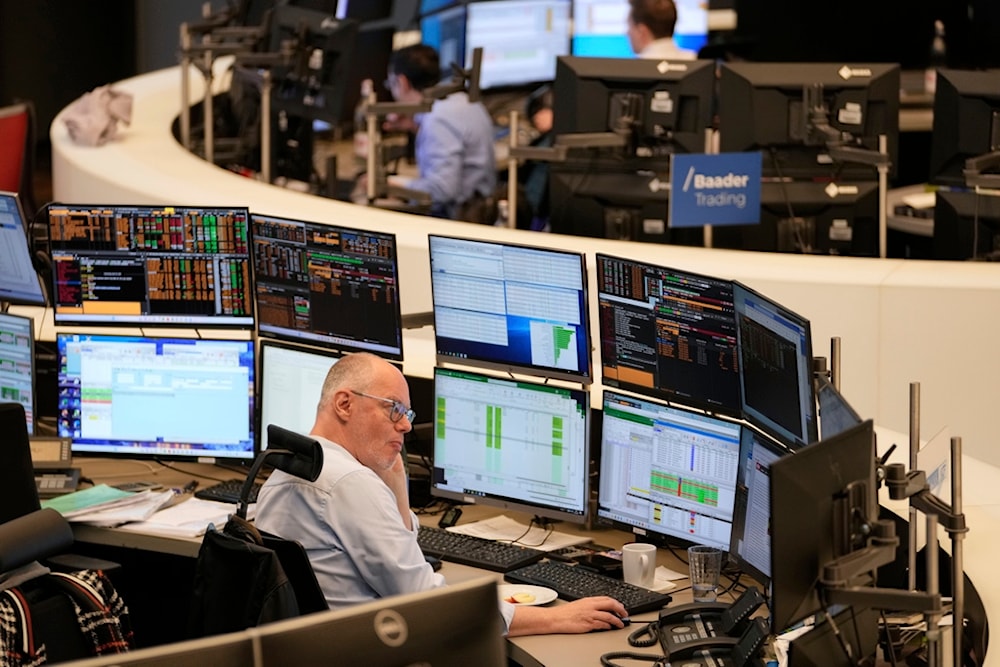European market turmoil spurs shift to defensive investments: EuroNews
Some investors are shifting away from high-risk investments in favor of safer options.
-

Traders work on the trading floor of the Frankfurt Stock Exchange in Frankfurt, Germany, Thursday, April 10, 2025 (AP Photo/Martin Meissner)
Euronews reported on Saturday that recent market instability in Europe has left investors on edge, with many grappling with managing their portfolios amid heightened volatility. While fluctuations may be unsettling, some analysts see them as a chance to buy into sectors that have been overlooked or undervalued.
According to writer Nick Saunders, a "gradual drip feed of investment into a diverse range of quality companies could be a smart approach." As uncertainty lingers, particularly around trade tensions and the potential influx of inexpensive Chinese goods into Europe, some investors are shifting away from high-risk investments in favor of safer options.
Confidence remains a key factor in sustaining upward momentum in stock markets. However, that confidence has been shaken in the current climate, particularly among European investors.
There has been a noticeable trend of refocusing on domestic markets. Defensive industries like healthcare and consumer staples have gained traction. Companies such as Novo Nordisk, AstraZeneca, and Roche are noted for their resilience and ability to deliver steady returns regardless of economic cycles. Brands like Nestlé, Unilever, and L’Oréal also offer stability and consistent income streams.
Saunders notes that "short-term fluctuations may unsettle investors who are used to predictability, but they also present entry points in undervalued sectors."
Strategic Shifts
At the same time, geopolitical and trade dynamics are prompting strategic shifts. With Chinese electric vehicles facing barriers to the US market, manufacturers like Volkswagen, BMW, and Stellantis may see opportunities within Europe. Meanwhile, BYD and Nio are expected to explore alternative markets to offset reduced access to the West.
Despite this, a growing number of investors are pulling back from equities, preferring the safety of cash and money market funds. Saunders warns, however, that while "holding assets in cash is a great short-term insurance policy," it is "a poor long-term investment."
He advises those seeking stability to consider collective investment vehicles and a mix of high- and low-risk holdings as a way to navigate current challenges: "Choosing collective investments over single stocks and balancing higher-risk investments with more mundane choices may help smooth out the bumps along the way."
Read more: European markets rise as dollar slumps amid 'Trumpcession' fears

 2 Min Read
2 Min Read










